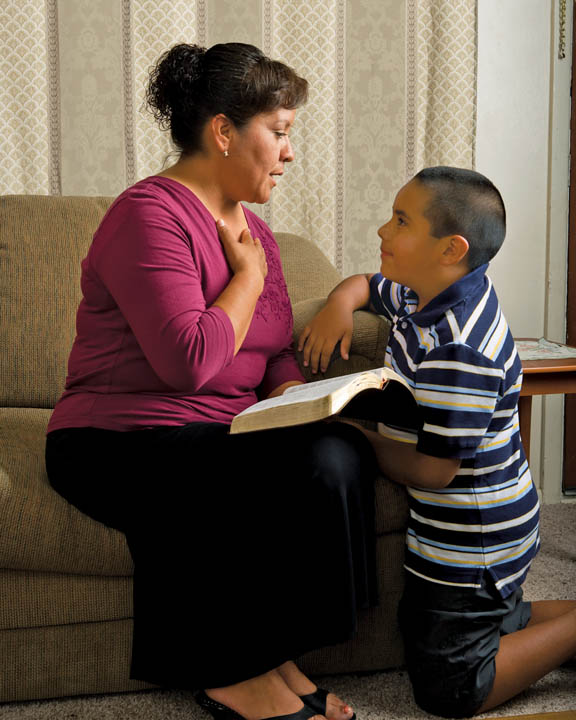
I’ve had an influx of thoughts pointing to one main idea this weekend. Mother’s Day, of course, gets us thinking about mothers. This week’s General Conference Odyssey post covers the last session of April 1988, where two talks focus on mothering. And this week’s reading of Abinadi and King Noah finds me thinking about their mothers. On top of that, I am reminded to not feel guilty about my own personal mothering. So, bear with me as I sort through all these thoughts.
Personally, Mother’s Day has never been my favorite day. I raised six kids and even though they’re all great adults, I wonder sometimes where I went wrong. My ward sent out chocolate bars that specifically announced, “no calories!” Somehow, the self-accusation of general mothering is covered and washed away in guilt-free chocolate.
General Conference Talks
Elder Yoshihiko Kikuchi speaks on women as daughters of God. I think he is the first General Authority who cried at the pulpit. He was very tender hearted and I’m sure his tears fell as he spoke of honoring such lovely and special daughters of our Heavenly Father. He did tell a beautiful story about Jonathon Napela. This story happens to also be told in Saints, Vol. 2. This man’s wife contracted leprosy and was banished to the island of Molokai. Jonathon didn’t want her to be there alone, so he went with her and served not only her, but everyone else in this leprosy colony. It doesn’t seem fair that he ended up dying of leprosy before his wife did. Love is sometimes not fair.
Sister Dwan J. Young speaks on parenting. Her focus is on teaching the gospel of Jesus Christ to your children. For some people, this is a touchy subject. For me, this is the only safe way to raise my children. We don’t have to make up the gospel as we go, winging it with every catastrophe. We merely have to point to the scriptures and read about the demands of justice, and tender mercy, already laid out and given to us.
Abinadi and King Noah
Which leads us to our Come Follow Me reading this week. Abinadi’s explanation of justice and mercy, found in Mosiah 15, is a great tutoring for guilt-free mothering. Little children just need to be loved with plenty of mercy as they get into innocent trouble. But as a child grows, and enters into covenant making age, a parent (often the mother) has to judge situations as acceptable behavior or not. As my husband and I discussed this, we decided a father is often the disciplinarian (the judge) in the household. The mother often brings in a large amount of mercy to offset the “cruel” judgment. These roles can be reversed. When a mother finally loses her cool and blasts those pesky brats, the father better be around to mercifully cool things down.
But what happens when there is no father? The mother has to be both justice and mercy. And that is very hard to do. In fact, it is important for both justice and mercy to exist. Parents, together, can act as “prophets” in their own homes, warning and teaching their children the rules in order to be judged correctly. And as the children grow, they fall back on their teachings of imperfectly breaking rules, repenting, and depending on the Savior to grant them mercy.
Seriously, where would we be without Jesus Christ, who grants us so much mercy, if we repent from breaking those rules of justice?
And then I got to thinking about the mothers of Abinadi and King Noah. What kind of mothers were they? Was one perfect and the other kind of lazy? Probably not. Did they try their best? Likely. Can we praise or blame them for their children’s actions? No.
Guilt-Free Mothering
This earth life isn’t easy. And none of us is perfect. And mothers, especially, want the best for their children. Sometimes we struggle between justice and mercy as we bring up these little monsters. But we can teach a better way when we teach from the scriptures. Simply following what our scriptures teach gives us all a better foundation and helps us be better people. This is how we survive these years of mortality. And it leads to guilt-free mothering—well meaning, scripture teaching, always loving mothering.
Beautiful, encouraging thoughts. Thank you!